-
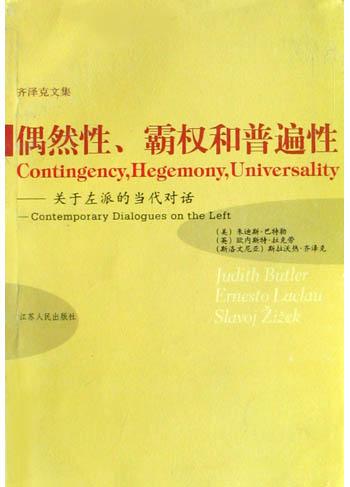
偶然性、霸权和普遍性:关于左派的当代对话
葛兰西霸权观念的当代遗产是什么?既然普遍性的虚假版本已被彻底批判,那应该如何去重新阐述它?在这一彻底颠覆性的项目中,巴特勒、拉克劳和齐泽克这三位在国际学术中以激进风格著称的当红明星就当代哲学和政治学的中心问题进行了对话。他们的论文按照三组彼此对应的文章进行编排,涉及黑格尔在当代批判理论中的遗产、文化多元主义的理论困境、普遍性与特殊性之间的争论、全球化经济体系中左派的战略,以及后结构主义和拉康的精神分析对批判的社会理论的价值等等问题。在本书中,三位大家在尖锐地批评另两位的思想的同时奋力为自己的观点辩护。激烈的争论,严密的论证,精彩的辩护,大胆的揭露……本书充满了火药味。 -
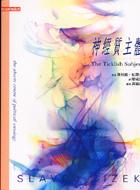
神經質主體
紀傑克用幽默生動的筆調,將通俗易懂的流行文化捻成線頭輕巧穿過晦澀難解的拉岡精神分析理論的針眼,一進一出,貼合了當今左翼最激動人心的思想,也留下豐沛顯眼的論證。一個幽靈在西方學術界徘徊--笛卡兒主體的幽靈。為了對抗解構主義者與哈伯馬斯派、認知科學家與海德格派、女性主義者與新時代的蒙昧主義者,《神經質主體》在這個難以捉摸的主體當中,挖掘出顛覆性的核心,並在核心內部找到了真正的解放政治所不可或缺的哲學參照點。 -
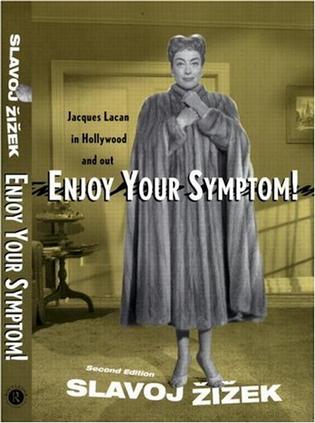
Enjoy Your Symptom!
Slavoj Zizek, dubbed by the Village Voice "the giant of Ljubljana," is back with a new edition of his seriously entertaining book on film, psychoanalysis (and life). His inimitable blend of philosophical and social theory, Lacanian analysis, and outrageous humor are made to show how Hollywood movies can explain psychoanalysis-and vice versa using films such as Marnie and The Man Who Knew Too Much. -
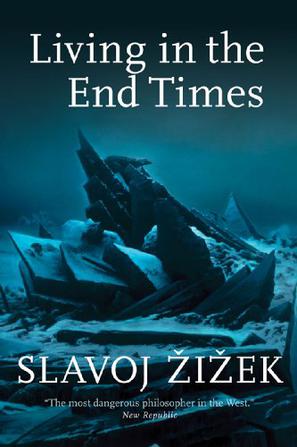
Living in the End Times
There should no longer be any doubt: global capitalism is fast approaching its terminal crisis. Slavoj Zizek has identified the four horsemen of this coming apocalypse: the worldwide ecological crisis; imbalances within the economic system; the biogenetic revolution; and, exploding social divisions and ruptures. But, he asks, if the end of capitalism seems to many like the end of the world, how is it possible for Western society to face up to the end times? In a major new analysis of our global situation, Slavok Zizek argues that our collective responses to economic Armageddon correspond to the stages of grief: ideological denial, explosions of anger and attempts at bargaining, followed by depression and withdrawal. After passing through this zero-point, we can begin to perceive the crisis as a chance for a new beginning. Or, as Mao Zedong puts it, there is great disorder under heaven, the situation is excellent. -
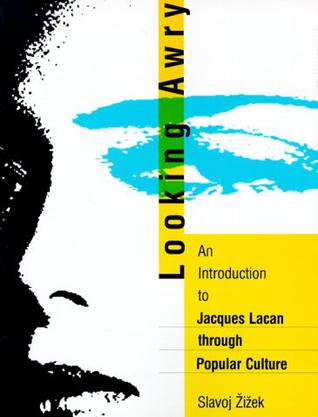
Looking Awry
Slavoj Zizek, a leading intellectual in the new social movements that are sweeping Eastern Europe, provides a virtuoso reading of Jacques Lacan. Zizek inverts current pedagogical strategies to explain the difficult philosophical underpinnings of the French theoretician and practician who revolutionized our view of psychoanalysis. He approaches Lacan through the motifs and works of contemporary popular culture, from Hitchcock's Vertigo to Stephen King's Pet Sematary, from McCullough's An Indecent Obsession to Romero's Return of the Living Dead - a strategy of "looking awry" that recalls the exhilarating and vital experience of Lacan.Zizek discovers fundamental Lacanian categories the triad Imaginary/Symbolic/Real, the object small a, the opposition of drive and desire, the split subject - at work in horror fiction, in detective thrillers, in romances, in the mass media's perception of ecological crisis, and, above all, in Alfred Hitchcock's films. The playfulness of Zizek's text, however, is entirely different from that associated with the deconstructive approach made famous by Derrida. By clarifying what Lacan is saying as well as what he is not saying, Zizek is uniquely able to distinguish Lacan from the poststructuralists who so often claim him.Slavoj Zizek is a Researcher in the Institute of Sociology at the University of Ljubljana, Yugoslavia. His work has been published in France and in Yugoslavia where, running as a proreform candidate, he narrowly missed being elected to the presidency of the republic of Slovenia. -
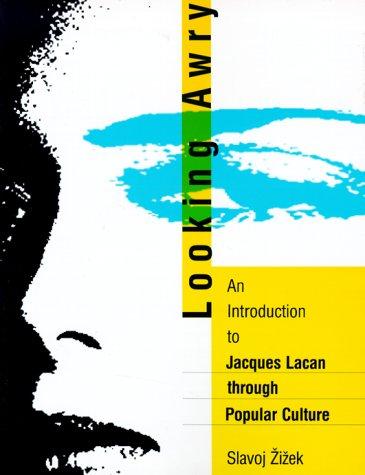
Looking Awry
Slavoj Zizek provides a virtuoso reading of the psychoanalytic theory of Jacques Lacan through the works of contemporary popular culture, from horror fiction and detective thrillers to popular romances and Hitchcock films. 這本書比較淺易,而且對一些精神分析的基本術語如欲望、驅力、幻象等等都有一些容易捕捉的界定,堪稱齊澤克入門。